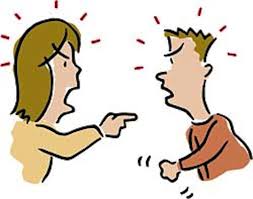Everybody Lies

First, let me say I'm aware that I make things up for a living, so writing about lying is a little hypocritical. But I don't pretend that what I say is real, and that's the difference. Everyone in our society is bombarded with lies all day, every day. We're used to it. Sometimes we even enjoy it. When analysts dig into why people believe lies, they find all sorts of explanations. Confirmation bias means we like things that reinforce what we already believe, so we accept lies that help with that. Many like leaders or organizations that tell them what to think, so they don't have to reason things out for themselves. If that leader lies, at least he's tough. If the organization runs to propaganda, at least it's working for "our" benefit. Another big reason we believe lies is fear . If we don't think we can cope with X, we like it when someone promises that X won't happen, even if we know in our hearts that it isn't true. Conversely,

